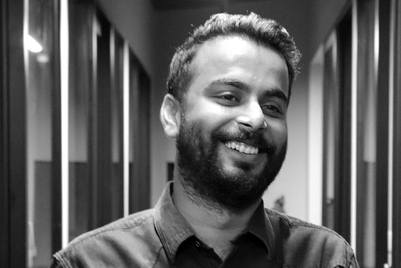Our parents, their parents and their parents were the early to bed, early to rise makes you healthy, wealthy and wise lot. They believed in the power of routine and practised it with devotion. And ever since, routine has been proudly touted as discipline. Perhaps it is more about economics.
Being a part of the middle class necessarily meant economic discipline. Couple it with an exclusively middle class feeling called guilt and routine goes a long, long way. Routine is a tracker. A money-saving mechanism. Routine calibrates consumption. It is a way to turn your lifestyle into an excel sheet. A precise tally of what you did, where you spent the money and by not doing what did you save money. Once a routine is established, all things off routine will be done with utmost deliberation, and awareness of its repercussions. indulgences will also be planned and executed.
After all, no matter how wayward your indulgence, you still have to be back to bed at 10. And up at 5. A lifestyle loop, a self-imposed austerity measure disguised as a way of life. Groundhog days. Within the rigid structure of routine, there is some play. Too much and it will upset the order. No surprises at all and Jack will be a dull boy. So routine is as much about balance as it is about rigour and repetition.
Routine was invented by the savers. It was necessary. Income was limited. There were more mouths to feed. Battle lines had to be drawn between purchase and penury. Desire had to be muted. Shopping was therefore purely occasion based. Routine demanded it. New clothes for Diwali. Sweets for very special occasions. Who gets what, how much, fixed shopping destinations. The annual routine of staying with relatives during summer vacations obviously meant money saved in cost of accommodation and food. Besides there was already knowledge of where to go when there, which restaurants are cheap but good. A comfortable familiarity regarding the expenses involved gave the savers a sense of control over the budget and that in turn was the real enjoyment of the vacation. A middle class victory. We had fun within the budget. We will go back there…it works. Annual expressions of love, all accounted for. By now I may have jogged your memory. Every household had its own drill. It went down to the minutest of detail. They rationed our desire. And made us want only what they could afford. And routine was so deeply ingrained as a virtue that demanding anything off the charts was blasphemy. Karmic points will be lost if you are a lustful seeker of material pleasures that are off the list.
For the purpose of better understanding the wonders of this subject, let’s draw a line, a broad stroke but useful. A line between the savers and the spenders. We are the spenders. We became spenders when we saw the world and when we started earning. We wriggled free. We saw things that the savers had hidden from us lest we get tempted. We invented bucket lists. We decided that experience is currency and can be bought with money and time. And new experiences mean no routine. Grab at them when they come. Because we had the money, we sacrificed routine. Eat when you want to, where you want to, there are no special days, every day could be different from the previous day. Wake up when you wake up, sleep, don't sleep. No excel sheet of routine to govern your actions. And collectively the spender force became a spent force. The credit card threw open the gates. Impulse driven spending. No assigned budget. It was anti routine.
But COVID-19 has brought routine back into our lives. This time around routine is about survival. It has turned many spenders into savers again. We are right now living like our parents always did. Theirs was a self-imposed lockdown, our is thanks to China. Think about it. The lockdown has forced us into a lifestyle that most of our parents voluntarily chose. NOW, we are thinking about rationing our money. We are getting used to DIY. We are getting used to consuming less. We are planning usage. We are dividing or deciding what tasks to take on in the house. We are budgeting more seriously. Our body clocks are adjusting to a fixed sleep cycle. We eat on time. And guess what.. we actually are spending less, saving more.
Perhaps, routine is the vaccine the world is looking for.
The author is chief creative and content officer, Tilt Brand Solutions
.jpg&h=570&w=855&q=100&v=20250320&c=1)
.jpg&h=570&w=855&q=100&v=20250320&c=1)


.jpg&h=334&w=500&q=100&v=20250320&c=1)
.jpg&h=334&w=500&q=100&v=20250320&c=1)
.jpg&h=334&w=500&q=100&v=20250320&c=1)
.jpg&h=334&w=500&q=100&v=20250320&c=1)


.jpg&h=334&w=500&q=100&v=20250320&c=1)
.jpg&h=334&w=500&q=100&v=20250320&c=1)










